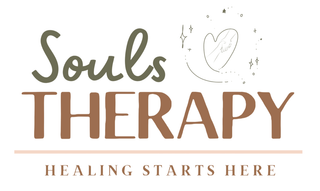Trauma changes the way we see the world—and ourselves. For those living with the invisible wounds of emotional, physical, or psychological trauma, healing can feel like a mountain too steep to climb. But what if the most powerful tool for healing was already within you?
Self-love and self-compassion are not just buzzwords. They are lifelines—proven, powerful forces that gently guide trauma survivors out of shame, fear, and self-blame, and into peace, safety, and emotional restoration. In this post, we’ll explore how embracing self-love and self-compassion can become the foundation for trauma recovery—and how you can start today.
What Is Trauma and How Does It Affect Us?
Trauma can come from a single overwhelming event or repeated experiences that leave us feeling unsafe, unseen, or unworthy. It affects the body, the brain, and the spirit:
Hypervigilance and anxiety
Emotional numbness
Low self-worth
Guilt or shame
Fear of connection
Many survivors carry the belief that they are not enough. That they are broken. But the truth is: you are not broken—you are wounded, and wounds can heal.
What Is Self-Love?
Self-love is not selfishness or vanity. It is the deep knowing that you are worthy of kindness, care, respect, and peace. It means treating yourself with the same compassion you offer to others.
Self-love means:
Setting boundaries without guilt
Listening to your needs and honoring them
Forgiving yourself
Speaking to yourself gently
Trusting in your worth—regardless of your past
When we practice self-love in trauma recovery, we begin to rebuild the internal safety that trauma once stole.
What Is Self-Compassion?
Dr. Kristin Neff, a pioneer in self-compassion research, defines it as the practice of being kind to ourselves when we suffer, fail, or feel inadequate. Instead of harsh self-criticism, we offer comfort.
Self-compassion includes:
Mindfulness: recognizing your pain without judgment
Common humanity: knowing you’re not alone in your suffering
Self-kindness: offering yourself warmth instead of punishment
These principles are especially important for trauma survivors, who often internalize blame or feel isolated in their pain.
How Self-Love and Self-Compassion Heal Trauma
Here’s how practicing self-love and self-compassion creates real, lasting healing:
1. Calms the Nervous System
Trauma keeps the nervous system in fight-or-flight. Compassion activates the parasympathetic nervous system—the “rest and digest” state—helping you feel safe again.
2. Rebuilds Trust in Yourself
When you were hurt, your boundaries may have been violated. Self-love helps rebuild trust in yourself to make decisions, to say no, and to protect your peace.
3. Rewires the Brain
Neuroscience shows that loving, affirming self-talk and mindfulness can rewire the brain’s trauma pathways. What you say to yourself matters.
4. Creates a Foundation for Healthy Relationships
Healing doesn’t happen in isolation. When you treat yourself with compassion, you naturally attract and allow relationships that reflect that same love.
5. Reduces Shame and Self-Blame
Shame is one of trauma’s most toxic side effects. Self-compassion is the antidote. When you acknowledge your pain with love, shame loses its grip.
Why Trauma Survivors Struggle With Self-Love
They were never shown love in a safe or consistent way
They were made to feel unworthy of care
They internalized abuse or neglect
They believe healing is for “others,” not them
But these are wounds—not truths. Self-love and compassion are muscles that can be rebuilt, no matter how long it’s been.
Self-Love and Self-Compassion Practices That Support Healing
Here are gentle, practical ways to begin.
Daily Affirmations for Trauma Recovery
“I am worthy of love, even when I feel broken.”
“My trauma does not define me.”
“I am allowed to take up space.”
“I speak to myself with kindness.”
Journal Prompts
What do I need today to feel safe?
What would I say to a younger version of me?
In what ways am I already healing?
Nervous System Regulation Tools
Deep breathing
Grounding exercises
Gentle movement or stretching
Self-soothing touch (like placing a hand on your heart)
Forgiveness Practice
Forgive yourself for what you didn’t know, for how you survived, for not healing fast enough. Offer yourself the grace you so easily give others.
Faith-Based Reflection
Meditate on Psalm 34:18: “The Lord is close to the brokenhearted and saves those who are crushed in spirit.”
Reflect on how God's love is constant—even when we feel lost
Healing Isn’t Linear—But Love Makes It Possible
Healing from trauma is not a straight line. There will be setbacks, triggers, and hard days. But every moment you choose to speak kindly to yourself, every breath you take with compassion, you are healing.
Self-love doesn’t erase trauma—but it gives you a new foundation.
Self-compassion doesn’t mean weakness—it’s the strongest thing you can do.
You are worthy of your own love. You are capable of compassion. And you are not alone.
How SOULS THERAPY Supports Your Healing
At SOULS THERAPY, we create tools that help trauma survivors like you practice self-love and compassion every day:
🛠️ Therapeutic Journals for emotional healing📘 Second Chance to Live eBook to guide your reset journey🧘♀️ Guided Meditations and Breathwork to calm your mind and body🎓 Healing from Trauma Two Course Bundle for step-by-step emotional recovery
Visit soulstherapy.com to explore our healing resources.
You don’t have to wait until you’re “better” to love yourself. You don’t have to earn your healing. You only need to begin.
Self-love is not the reward for healing. It is the beginning of it.
With every act of compassion, you are reclaiming your story.

